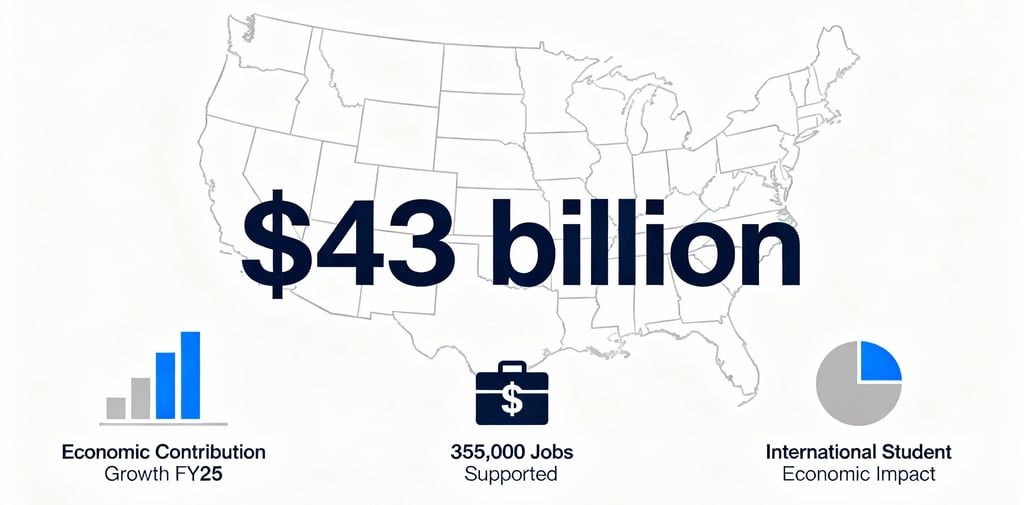Economic Contribution of International Students in FY25
International students contributed $43 billion to the U.S. economy in 2024-2025 and helped support over 355,000 jobs. Even though fewer new students enrolled due to visa delays and policy issues, they remain a key part of the economy by supporting jobs in education and local businesses.
MARKET NEWS
11/20/20251 min read


During the 2024–2025 academic year, international students supported more than 355,000 jobs and added about $42.9 billion to the U.S. economy. This is a 2% drop from the previous year, which is the first drop since the early pandemic years. Despite the drop, international students are still a big part of the U.S. economy, creating jobs in housing, retail, transportation, telecommunications, health insurance, and higher education.
A number of factors, including delayed visa processing, policy uncertainty regarding Duration of Status and Optional Practical Training (OPT), and tighter immigration sentiments under the Trump administration, are blamed for the 17% drop in new international student enrollments in Fall 2025. In the fall semester alone, the U.S. economy lost around 23,000 jobs and an estimated $1.1 billion due to this decline in enrollment.
California, New York, Massachusetts, Texas, and Illinois are the states with the most economic activity from foreign students. Contributions to community institutions have increased, generating $2.2 billion and sustaining over 9,000 jobs. While still below pre-pandemic levels, English language programs made a substantial contribution as well.
This information was made public by NAFSA: Association of International Educators and JB International, who also called on the U.S. government to strengthen immigration procedures, safeguard OPT, and enact laws like the Keep STEM Talent Act. To maintain the United States as a top destination for talent from around the world and to prevent further declines in the number of international students, who are crucial for economic, scientific, and innovation competitiveness, they emphasised the importance of post-study employment options.
This situation is taking place in the context of policy discussions and requests from certain political circles to limit the number of international students and post-study employment opportunities, which NAFSA cautions might have detrimental long-term effects on the U.S. economy and reputation abroad.
